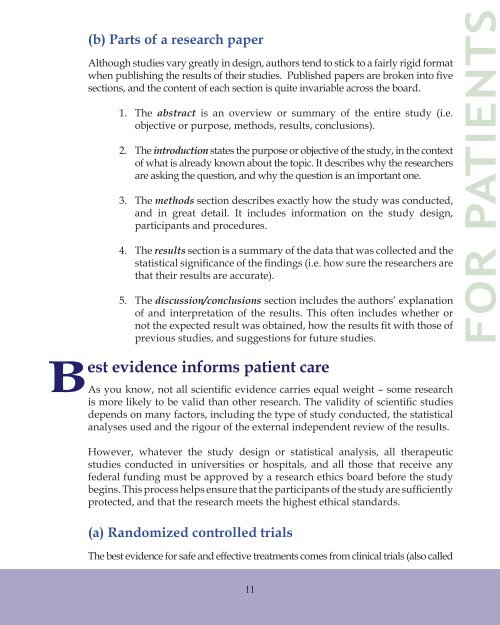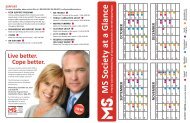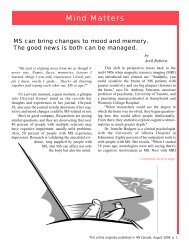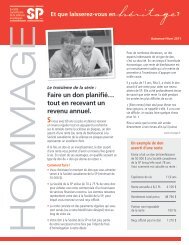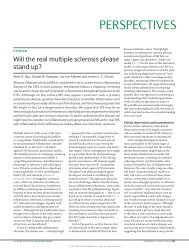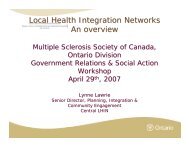Evidence-based medicine (EBM)
Evidence-based medicine (EBM)
Evidence-based medicine (EBM)
Create successful ePaper yourself
Turn your PDF publications into a flip-book with our unique Google optimized e-Paper software.
(b) Parts of a research paper<br />
Although studies vary greatly in design, authors tend to stick to a fairly rigid format<br />
when publishing the results of their studies. Published papers are broken into fi ve<br />
sections, and the content of each section is quite invariable across the board.<br />
1. The abstract is an overview or summary of the entire study (i.e.<br />
objective or purpose, methods, results, conclusions).<br />
2. The introduction states the purpose or objective of the study, in the context<br />
of what is already known about the topic. It describes why the researchers<br />
are asking the question, and why the question is an important one.<br />
3. The methods section describes exactly how the study was conducted,<br />
and in great detail. It includes information on the study design,<br />
participants and procedures.<br />
4. The results section is a summary of the data that was collected and the<br />
statistical signifi cance of the fi ndings (i.e. how sure the researchers are<br />
that their results are accurate).<br />
5. The discussion/conclusions section includes the authors’ explanation<br />
of and interpretation of the results. This often includes whether or<br />
not the expected result was obtained, how the results fi t with those of<br />
previous studies, and suggestions for future studies.<br />
Best evidence informs patient care<br />
As you know, not all scientifi c evidence carries equal weight – some research<br />
is more likely to be valid than other research. The validity of scientifi c studies<br />
depends on many factors, including the type of study conducted, the statistical<br />
analyses used and the rigour of the external independent review of the results.<br />
However, whatever the study design or statistical analysis, all therapeutic<br />
studies conducted in universities or hospitals, and all those that receive any<br />
federal funding must be approved by a research ethics board before the study<br />
begins. This process helps ensure that the participants of the study are suffi ciently<br />
protected, and that the research meets the highest ethical standards.<br />
(a) Randomized controlled trials<br />
The best evidence for safe and effective treatments comes from clinical trials (also called<br />
11<br />
FOR PATIENTS


